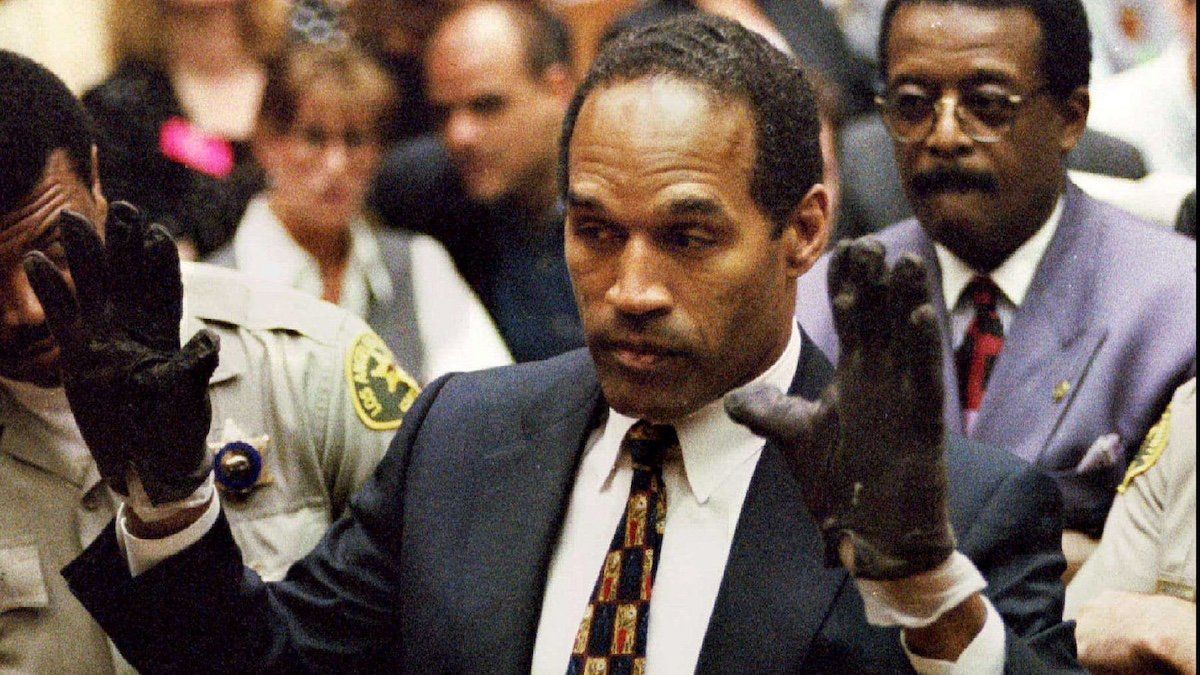“White Bronco.” “Lance Ito.” “If it doesn’t fit, you must acquit.” “Kato Caelin.” “Johnny Cochran.” Each of these names and moments associated with the 1995 murder trial of ex-football star OJ Simpson, who died of cancer on Wednesday at 76, is a time warp for anyone in America who was even remotely conscious in the mid-1990s.
Simpson, to recall, was accused of killing his ex-wife, Nicole Brown Simpson, and her friend Ron Goldman. And while the proceedings were nearly 30 years ago, there are many ways in which the “trial of the century” lives on today.
For one thing, it helped get America hooked on 24/7 media. These days, when every utterance of every politician, celebrity, conspiracy theorist, or cat is instantly seen and shared by tens of millions on social media, it’s hard to fully grasp just how revolutionary the coverage of the Simpson trial was.
Even before Judge Lance Ito decided to allow cameras in the courtroom, a third of Americans had already tuned in to watch live helicopter-cam footage of the most famous car chase in American history: Simpson’s white Ford Bronco gliding slowly through LA traffic, pursued gingerly by several police cars.
Then, in a first, CNN and Court TV covered nearly every minute of the trial, which lasted eight months. In today’s terms, it was the first livestream. And it certainly produced what we would come to see as “viral moments” – the Bronco chase, OJ trying on the glove, Cochran rhyming to the jury: “If it doesn't fit, you must acquit.”
An America that was just getting used to cable TV quickly became hooked on a televised scandal that had it all: race, class, celebrity, and murder. TV amped the drama, and the drama amped TV, pumping it directly into America’s wide-open eyeballs for over a year. Even President Bill Clinton was reported to have stepped out of a meeting to watch the final verdict.
Racial tensions created parallel realities. Simpson went on trial at a moment of high racial tension in America. Just three years earlier, a mostly white jury acquitted four LA police officers caught on camera beating Rodney King, a Black motorist. The verdict enraged much of Black America and sparked some of the worst race riots the country had seen in years.
And three years later, there was Simpson, a wealthy Black athlete accused of murdering his white ex-wife. Views of the evidence – which, again, the entire country could see alongside the jury – split dramatically along racial lines. Most whites thought he was guilty, most Blacks thought he was framed.
As it happened, Simpson’s all-star lawyers ran laps around the hapless prosecution, and the majority-Black jury acquitted Simpson.
But that settled nothing in the court of public opinion. A poll at the time showed that three-quarters of Black Americans believed that Simpson was innocent, while fewer than half of white Americans thought the jury had reached the right verdict.
It was not until 20 years later – after Simpson, convicted of liability for the murders in a separate civil case, wrote a quasi-confessional book titled, amazingly, “If I Did It” – that a majority of Black America would come to believe that Simpson was guilty. Even then, there was still a 25-point difference between white and Black views.
But class was also part of the drama. A huge majority of Americans believed that Simpson’s immense wealth had helped him beat the rap.
After all, his lawyers, known as the “Dream Team,” included some of the most prominent (and expensive) attorneys in America – not only Cochran, but towering figures like Alan Dershowitz, F. Lee Bailey, and Robert Shapiro. A dream like that isn’t purchased for a song.
So alongside the racial dimension of the verdict, many Americans saw it as evidence that the wealthy get a different – and more lenient – justice system than the rest of us. Three-quarters of Americans polled said that Simpson would’ve been found guilty if he weren’t rich.
What does it all look like three decades later? A merciless media cycle, a public engrossed in a drama of race, class, and justice, parallel views of the same facts -- in the end, wherever you were when you saw OJ Simpson fleeing the police, trying on those gloves, or swearing that he “would not, could not, and did not kill anyone,” we are all, in a sense, still living in the world that OJ left us.
